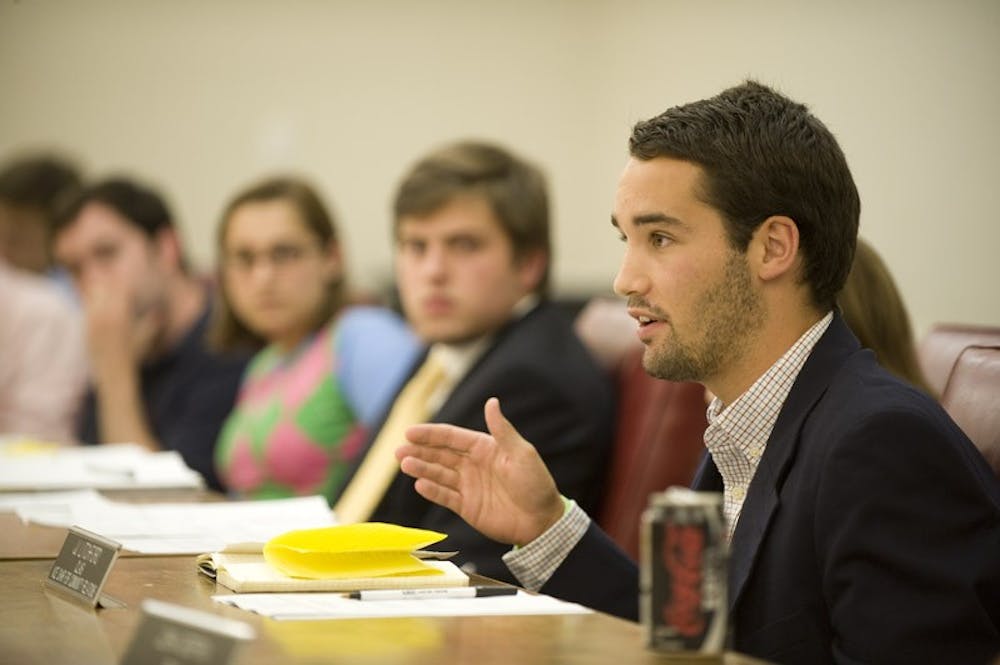Despite having only a few months left in their terms, the members of the Honor Committee continue to examine what they can accomplish, specifically focusing on two amendments that could alter jury composition at an accused student's trial.
One of these possible amendment changes will affect jury panels in cases where two or more students are tried together and cannot decide on a jury composition, Committee Chair David Truetzel said. According to the current bylaws, an accused student selects one of three jury compositions: a mixed jury of Committee members and randomly selected University students, a panel of only Committee members or a jury panel of only randomly selected students.
"As it stands now, there is nothing in the constitution or bylaws that allows the Committee to consistently and smoothly resolve a situation where two or more students being tried together request different jury panels or different preferences for an open versus closed trial," Truetzel said.
A proposed amendment discussed during one of the Committee's previous meetings, if voted upon, would remedy the problem by establishing the "mixed panel as the default panel should students fail to come to a consensus." Truetzel added that the amendment would also establish closed trials as the default in the case in which the two accused students cannot decide on whether they would prefer a closed or open trial.
Another amendment the Committee is considering would affect the jury makeup in regards to a student's particular school within the University, Truetzel said.
"Right now, a student is entitled to have at least two jurors from his particular school on the jury panel" if the panel is mixed or all-student, Truetzel said. This is easier to facilitate if the accused belongs to a larger school, because the Committee can readily find jurors from a student's school without risk of a conflict of interest, Truetzel said.
"With the opening of Batten, however, the ability of the Committee to always furnish this right has been called into question because Batten is so small" Truetzel said. "The same issue exists, to some extent, with other smaller schools like Curry or McIntire."
To ensure a student's trial is fair, "the Constitution must be amended to say something along the lines of 'the student shall have at least two jurors from his school, whenever possible,'" Truetzel said.\nMoving forward, the Committee will continue to discuss these amendments, and hopes to vote on them before the end of its term.
Additionally, the Committee also is examining other projects to pursue leading up to the term's close, Truetzel said, noting plans to develop an alumni outreach program.
JJ Litchford, vice chair for community relations, said the Committee has drafted its first alumni newsletter that will be released sometime this semester and will be sent to approximately 2,000 Honor alumni. Additionally, Litchford said a one-page article will run in the University of Virginia Alumni Magazine to keep alumni informed about honor at the University.
These projects "represent sustainable contact with the alumni community," Litchford said, adding that the efforts will give older members of the University community "a little more depth and knowledge" about what the Committee has been working on lately.
Litchford said this is the first time the Committee "has really done extended alumni outreach efforts"







